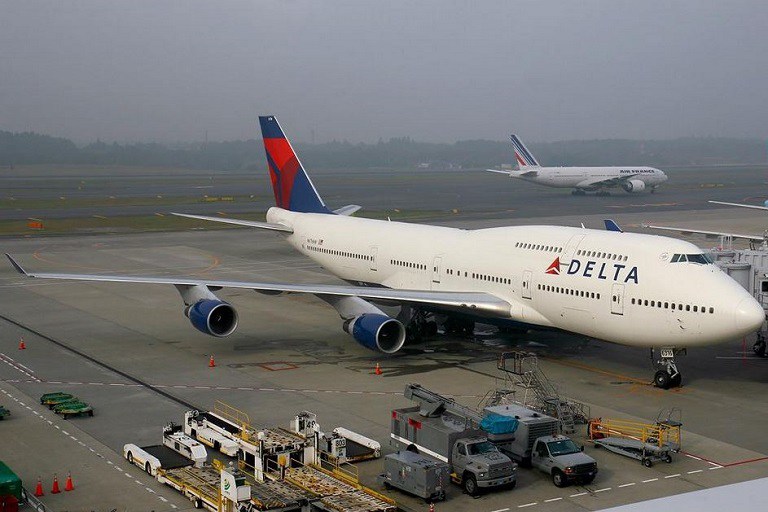Foreign airlines’ funds trapped in Nigeria has risen to $743 million from $662 million, the International Air Transport Association, IATA, said on Tuesday, March 14, 2023.
The blocked revenue, which stood at $549 million in December, rose to $662 million in January.
The updated amount is contained in a letter titled: “Special appeal on airlines’ blocked funds in Nigeria” signed by the Area Manager of West and Central Africa, Dr. Samson Fatokun.
It was addressed to Aviation Minister Hadi Sirika.
According to the letter dated March 14, the IATA and the global airline community urged the minister to intervene to resolve the issue.
During a visit to the minister in Abuja yesterday, the IATA stated that Nigeria has the highest amount of the trapped funds in the world.
It also noted that some airlines have resolved to cut their flights to mitigate the impact of the backlog of their funds.
According to the association, a reduction in the frequency of flights or reduction in available seats sold to Nigeria could impact negatively on businesses and in turn, trigger job loss.
It urged Sirika to use his office and ensure clearance of the backlog before the end of the President Muhammadu Buhari administration.
The letter reads: “The International Air Transport Associaton (IATA) presents its compliments to the Ministry of Aviation of the Federal Republic of Nigeria. We would like to thank you for your continuous support for the growth of air transport in Nigeria and for the actualization of its role as catalyst for the growth of the Nigerian economy.
“IATA and the global airline community would like to appeal for your special intervention for the resolution of airlines blocked funds issue in Nigeria.
“For over a year, Nigeria has been the country with the highest amount of airline blocked funds in the world. Please find attached the comparative table of airlines’ blocked funds by country.
“Moreover, as of January 2023, airlines blocked funds in Nigeria have increased to $743,721,092 from $662 million in January 2023 and $549 million in December 2022.”
It said the blocked funds, have, among other things, affected Foreign Direct Investments (FDI).
The letter reads: “The impact includes; strong message against FDI. The increasing backlog of international airlines’ blocked funds in Nigeria sends a strong message against Foreign Direct Investment (FDI) in Nigeria.
“Potential investors are reading from the plight of the airlines that they would not be able to repatriate their funds from Nigeria, even at this moment when Nigeria is expecting investments in the concession of some of its prominent airports.
“The image of a country that does not respect contractual obligations; foreign airlines fly into Nigeria within the legal framework of the Bilateral Air Service Agreement (BASA) signed between their countries and the Federal Republic of Nigeria.
“It is agreed in those BASAs that Nigeria will facilitate the repatriation of the funds of the other party’s airline. Nigeria flaunts this contractual obligation by not facilitating enough the repatriation of airlines’ funds.
“Reduced connectivity to and from Nigeria and high-ticket prices To mitigate the increasing backlog of their funds in Nigeria and its impact on their cash flow, some airlines have decided to reduce the number of their frequencies, or the number of seats made available for sale in the Nigerian market.”
On the fund’s impact on jobs, it stated: “The downstream sector of the aviation industry (travel agencies, freight forwarders, ground handling companies relies heavily on airlines’ capacity to grow or remain in business.
“Should the airlines be compelled to further reduce their capacity, those businesses would be negatively impacted, leading to job losses. The negative indirect impact will also affect ground transportation (taxi, car hire), hotels, and restaurants output.”
Sirika, who told his guests that the issue was beyond his ministry, however, promised to pass the request to the appropriate quarters.
He said: “The government is concerned especially the ministry of aviation. I am sure you are all aware that this is not a problem that is currently within the leverage of the ministry of aviation, if it were to be here, it would be resolved today.
“Unfortunately, it sits somewhere else more with the Central Bank of Nigeria who in turns keeps saying it is between them and the commercial banks.
“Whatever the case maybe we are very concerned, we will do the very best we can to resolve this matter soon. We will begin from today, we have been doing the best we can because we understand the importance of the services being provided and also the legitimacy of the request because it is something that is backed by the bilateral and multi-lateral agreements and something that is the law itself, so there is no reason why it should continue to remain.
“Nigeria, when we came in 2015, we saw two things that happened immediately, the price of crude that was $140 per barrel went down as low as $28 per barrel at some point and that is the single source of income for the country.”
He noted that a directive given to the Central Bank of Nigeria (CBN) to develop mechanisms to ensure that such funds are not blocked was one of the measures already taken by the Buhari administration.
”While we are doing our best, we will like to call on some of you to be very considerate when it comes to issues of this kind.
“Like it is said, it is really difficult when you do business and wait a year to get the income, it is honestly unacceptable. We will do the best that we can to push the CBN and I will also take the matter all the way to the presidency to ensure that is being attended to.”
Source: The Nation







